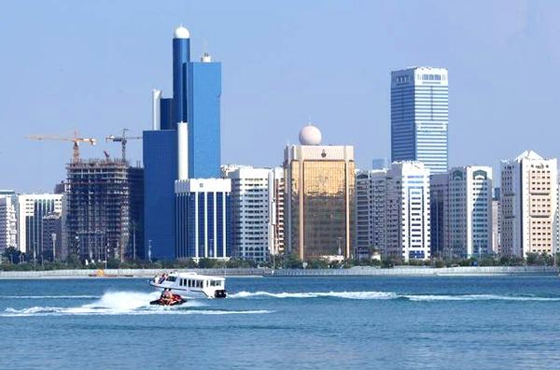Stronger product offerings and continued investment in Abu Dhabi’s leisure and hospitality infrastructure look set to generate a rebound in the emirate’s tourism sector.
While short-term headwinds could restrict growth and earnings this year, the medium- to long-term outlook for the sector is positive, according to a recent report released by property consultant Knight Frank, with upcoming projects identified as key drivers of continued expansion.
Rebound on the horizon
In the first quarter of the year, Abu Dhabi’s hotels saw guest numbers increase by 11% year-on-year (y-o-y) to 1.1m and guest nights rise by 10% y-o-y to 3.1m. However, there was a 2% y-o-y decrease in the average length of stay, according to data recently issued by Abu Dhabi Tourism & Culture Authority (TCA Abu Dhabi).
The shorter average stay contributed to a 0.4% dip in hotel occupancy, easing to 79% during the first three months of the year, with a bid to maintain occupancy rates by lowering room prices eroding revenue earnings early in 2016.
Hotel revenues fell 6% y-o-y in the first quarter, down to Dh1.7bn ($463m), with revenue per room dropping 13% to Dh336 ($91). Average room rates fell to Dh425 ($116), marking a 12% y-o-y decrease, according to TCA Abu Dhabi.
A decrease in visitors from Russia and CIS, combined with the strong US dollar and slower economic growth in Europe and China, which is expected to continue through 2016, are among the factors impacting demand and profit in the short-term, according to Knight Frank.
However, Abu Dhabi’s commitment to developing its entertainment offerings as well as continued investment in airline infrastructure is expected to stimulate visitor numbers, adding to the sector’s optimistic medium- to long-term outlook.
Opportunities also exist in the hospitality industry, as Abu Dhabi underserved in mid-market and budget hotel offerings, according to Knight Frank, with demand in these segments expected to rise as the product range is expanded.
Leisure and culture
Among the anticipated major demand generators is the $1bn Warner Bros. theme park at Yas Island scheduled to open in 2018. Other high-profile developments, such the $650m Louvre Abu Dhabi on Saadiyat Island, which is slated to open in the second half of this year, will also play a part in boosting the emirate’s visitor numbers.
In early June Abu Dhabi Department of Economic Development (ADDED) also announced it would be awarding contracts for the development of the Abu Dhabi offshoot of the Guggenheim Museum either late this year or in early 2017, Ali Majed Al Mansoori, chairman of the department, told local media.
This continued investment is expected to broaden the base of Abu Dhabi’s tourism market and support future growth, said David Dudley, head of JLL MENA’s Abu Dhabi office.
“Amidst general spending cuts, there is increased evidence of the government continuing to invest in mega tourism projects, particularly on the flagship Yas and Saadiyat Islands,” Dudley told regional media.
TCA Abu Dhabi is also looking to position Abu Dhabi as an archaeological and adventure destination by promoting Al Ain as a top heritage site in the Arabian Gulf and focusing on Sir Bani Yas Island’s archaeological sites, according to press reports in June.
National cooperation
Abu Dhabi is expected to benefit from a raft of new attractions coming on-line in other emirates, such as IMG Worlds of Adventure and Dubai Parks & Resorts’ Six Flags Dubai, which are expected to complement, rather than compete, with the emirate’s offerings.
This synergy could be codified into policy. Speaking in mid-May at a meeting with tourism officials, Sultan bin Saeed Al Mansouri, the minister of economy, highlighted the role a national strategy could play in positioning the UAE as a leading tourist destination.
“Tourism is one of the key sources of national income and its role, place and contribution to GDP should be doubled in the future in light of the leadership’s vision to further develop, as the UAE has a huge potential in the form of state-of-the-art infrastructure, magnificent diverse natural resources, grand tourism and hotel facilities and internationally recognised historic and archaeological landmarks,” Al Mansouri said.
Oxford Business Group
11 July
























































